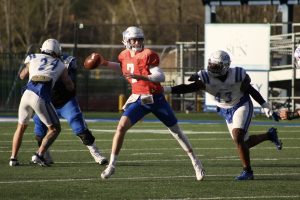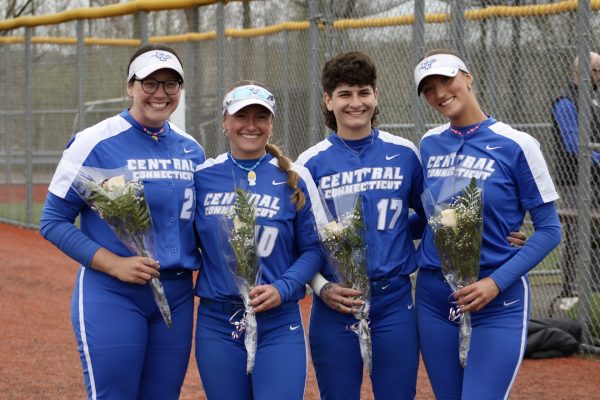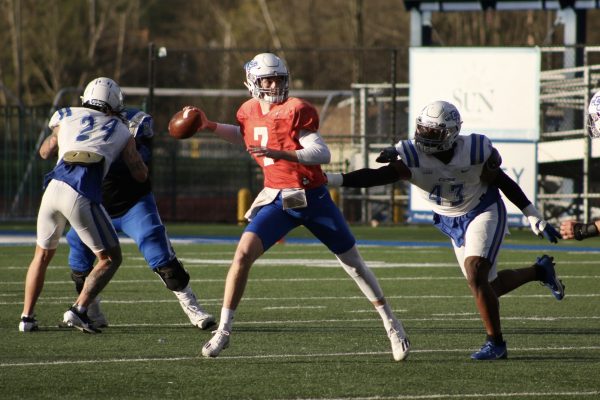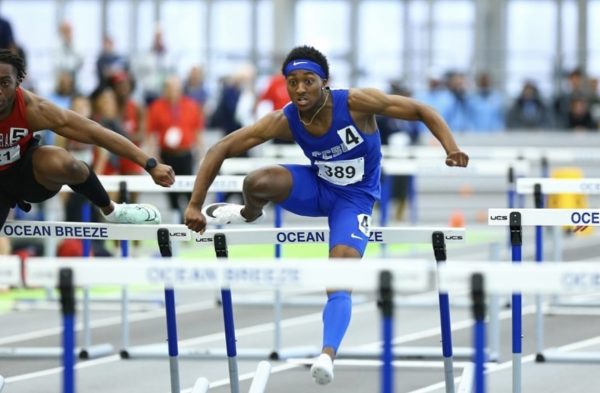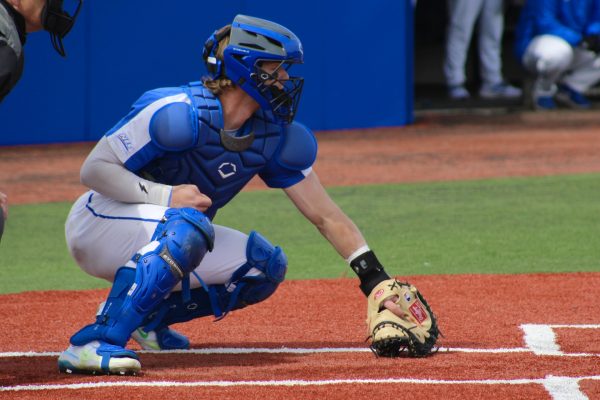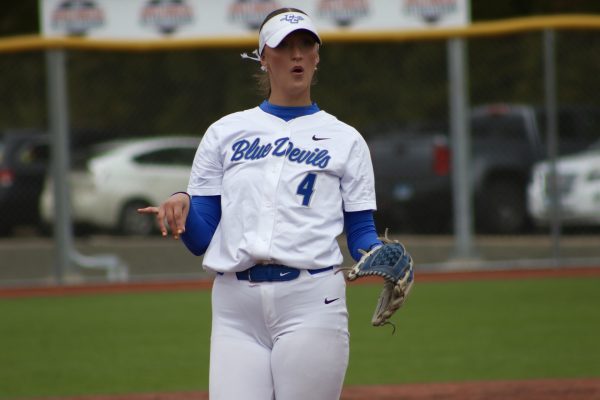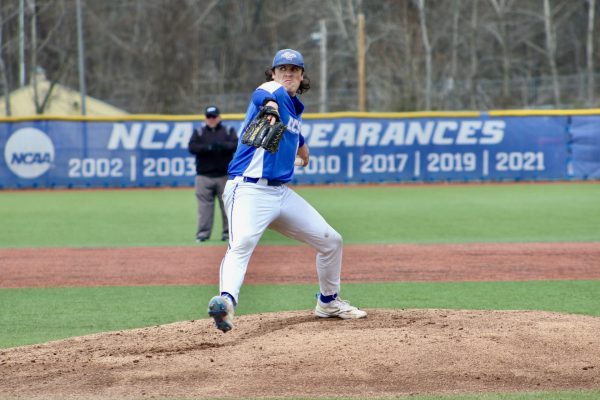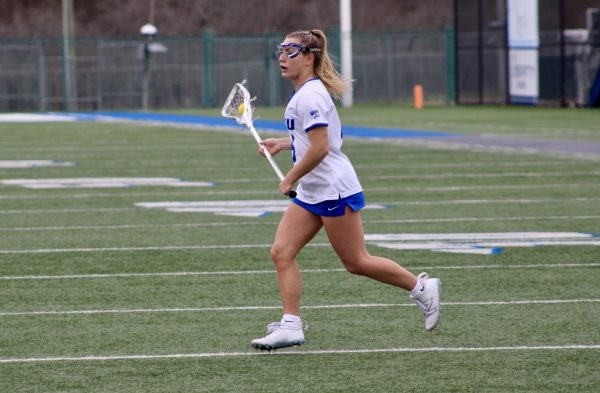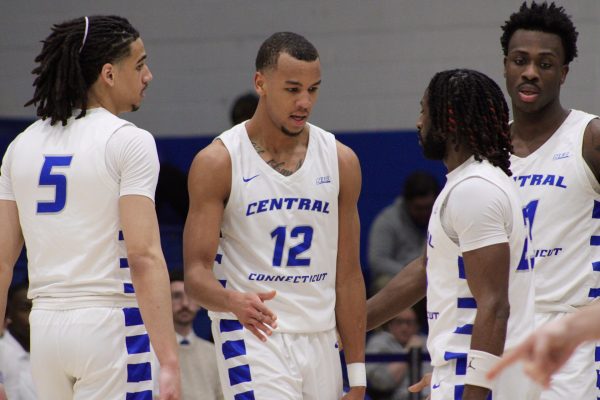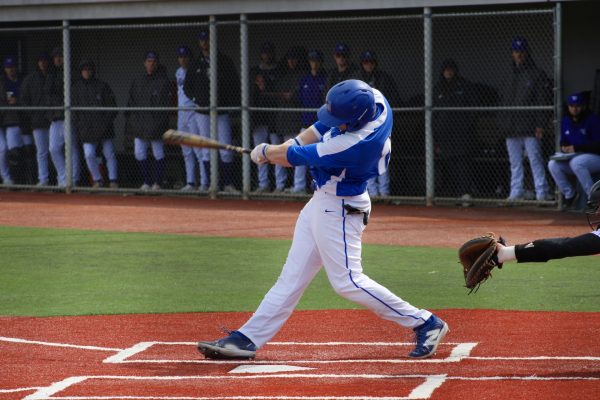NCAA Rule Change to NIL Guidelines
October 14, 2021
Some Connecticut college athletes are now receiving new opportunities due to the NCAA allowing them to profit from their name, image, and likeness.
As of July 1, college athletes can use their name, image, and likeness as a way to promote themselves.
Some student-athletes at Central Connecticut State have taken advantage of this new rule and have become “ambassadors” with name-brand companies.
Carli Backlund, a senior from Hamilton, New Jersey on the CCSU softball team, is an ambassador for the company Celsius. Celsius is a pre-exercise supplement drink that provides the body with energy.
“When I found out about the name, image, and likeness, I started to reach out to all different companies because I knew that some wanted D1 athletes to represent their companies,” Backlund said. “I had to fill out different social media questions and submit pictures of myself, etc., and a couple of weeks later, they emailed me back saying that they approved my applications and sent me what my next steps would be.”
Backlund said there are many benefits from promoting Celsius.
“I benefit from posting because every post is worth a certain number of points, and once I get a certain number of points, I get to pick any 12-pack flavor of Celsius I would want, and they send it to me for free,” Backlund said. “I also can use my points for Celsius gear and other products that you wouldn’t typically see in stores.”
Chase Swain, a baseball player from Southington, is a freshman at Pace University, located in New York City, New York.
“It allows college athletes more freedoms whereas before there were so many restrictions to the point where we couldn’t keep track of all the rules we had to follow,” he said.
Swain said the change by the NCAA opens more opportunities for athletes after college.
“We will gain more experience in different fields with sponsors,” Swain said. “We will become more dependent on how we decide to use our new abilities with name, image, and likeness.”
To some athletes, the opportunities brought on by the NCAA’s approval are not so attractive.
Alex Rogers, a sophomore from Southington on the CCSU softball team, said she is not interested in taking advantage of the name, image, and likeness opportunity.
“I would rather put my time and effort into school and find opportunities after I finish my athletic career,” Rogers said. “We get limited hours to get our work done, so in those hours I get, I put all my focus on school and nowhere else.”
Jessica Lee, a resident of Southington, said she supports the change the NCAA made.
“Collegiate athletes work rigorously throughout the week for hours a day working to better themselves by improving and learning new skills along with working with their teammates. They deserve to be able to use their image to connect with others, profitable or not,” Lee said. “This is a way for collegiate athletes to make a difference in society and their community by bringing something positive around.”
Lee’s significant other is a D1 football player, and she added that he would benefit from the rule change.
“Depending on the institution of the collegiate athlete, the guaranteed “pay” can be low enough where it is not possible to “live” comfortably off,” Lee said. “With the schedules collegiate athletes are required to attend, finding a job is tougher than the average college student encounters who may not be in a demanding sport along with handling their academic studies.”

